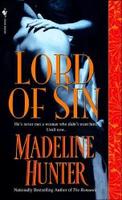
As a writer of historical novels, I notice how certain words cease to have cultural meaning over time. The obvious examples are words we don't even recognize anymore, like all that slang from the Regency period. Those are not the ones that fascinate me, however. Instead I am captivated by words that are still in general usage, but that are falling out of favor or even losing their meaning as our culture changes.
An example is the word "honor." It means more than honesty. It speaks volumes about a person to say he or she is honorable. The meaning appears to have less and less connection to the way our society operates now, though. The values associated with the word "honor" are not the ones celebrated today and the use of the word in present day speech sounds antiquated.
"Dignity" is another word that I use in my books but that seems to have little use or application today. Is this even a compliment anymore? Is being dignified a good thing, or does the word now conjure up images of some old, stodgy, tweedy person.
"Noble" is yet another word on its way to losing any meaning in modern usage. I mean noble as an adjective, not a noun. Several years ago my sister used the word to describe a young man to me, and I thought how odd it was for her to choose that word since I never hear or read it anymore. It was the right word, however, which was even more unusual.
Have you noticed other words going through this transition? Words that don't sound anachronistic yet, but that refer to qualities and values that were once admired but are not in step with our culture today?
9 comments:
"Awesome" is a word that doesn't seem to have the same meaning as it used to. Awesome used to represent something awe-inspiring, a miracle in past times. Now, it's used in such an ordinary, slang way, it doesn't seem to mean what it used to.
Candice, you are so right! I recently used "awesome" in the traditional way in a book and seriously considered changing it because of the slang. But it fit what I wanted to say, so I kept it in.
Yes, and it isn't just that the word is used differently now. Its original meaning doesn't have a place in our culture. Is anyone really awed anymore? In our jaded, been there and done that world, how often do we experience awe?
Actually, Madeline, my teen-aged daughter (who tends to use the word "awesome" rather loosely in general) caught the true meaning of the word when we visited the Grand Canyon a couple of years ago. She stood on the rim and gazed around before saying in almost a whisper, "This shouldn't be called the Grand Canyon; it should be called the Awesome Canyon."
And then there are the fun changes. Like, I seldom hear anyone call a sleazy, on-the-edge-and-maybe-over-it card player a "card sharp" any more. They're all Card Sharks now.
Nancy, isn't it amazing when our kids catch on?
I used the word "dignity" today in the "old" sense in a post, and wondered at the time if I should change it.
A thought-provoking post. Thank you.
Regal is one that I noticed has lost its oomph. It came to mind yesterday when I was describing a singer. (not for a story) I think it's sad that we've 'lost' the true meanings of these words. They are desperately needed in these times.
In high school, I had one of the leads in the play, Our Hearts Were Young and Gay. The play was considered a classic at the time and was really a nice period (the late 1900s) coming of age type story that certainly resonated with me and the rest of my classmates. Obviously, no one could do this play anymore, not without changing the title. This title now would mean something totally different. (And most parents wouldn't let their young children come to see it.) I think it's sad when we 'lose' words to the culture. What other three letter word could say so much about a specific type of carefree joy?
Alfie, I loved that story -- the book was one of my favorites from my grandmother. I always think of that title when I sing a song with my kindergarten students about the kookaburra bird. The original line is "gay your life must be." About five years ago, I had to change it to "happy." The rhythm isn't the same, one syllable to two, which may say something about what has happened. . . our daily rhythm has shifted and now the words we used previously don't fit.
Maybe we should pick a word that we want to bring back into use and all use it each day. The ripple effect would spread it through the country.
Post a Comment